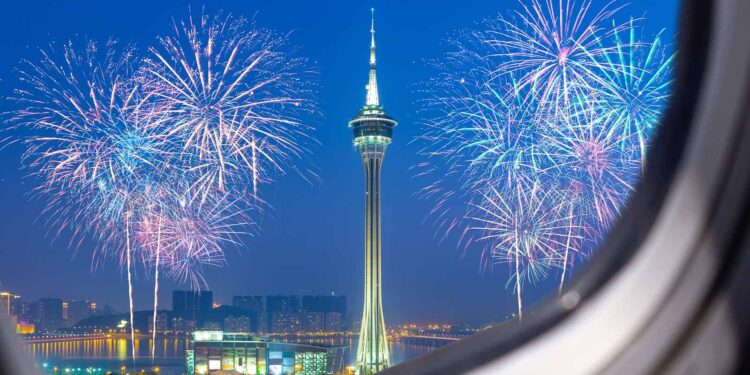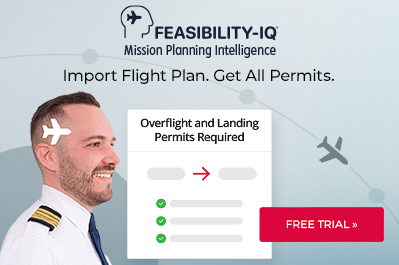Transiting Malaysia: Part 1 – Airports & Local Area

This business aviation blog post is part of a series on traveling to Malaysia.
Malaysia is a relatively straight-forward, easy, operating environment with limited documentation requirements. Overflight permits are not necessary for most operations, and currently there are no Stage II noise restrictions. While there are no strict cabotage limitations in place, it is highly recommended to double check with your permit vendor when submitting your landing application. Your type of flight (private non-revenue or charter) does not impact your ability to travel to Malaysia, and permit lead times for both are similar.
The following is an overview of what you need to know:
1. Popular destinations in Malaysia
While Kuala Lumpur is the most common general aviation (GA) stop in Malaysia, there are many airports of entry (AOE) and domestic airports available on both peninsular Malaysia and East Malaysia (encompassing Sarawak and Sabah on the north coast of the island of Borneo). In addition to two Kuala Lumpur airports – Kuala Lumpur Intl (WMKK) and Subang (WMSA) — other popular destinations in Malaysia include Penang (WMKP), Kuching (WBGG), Johor Bahru (WMKJ) and Malacca (WMKM). Landing permits are needed for all operations to Malaysia, but overflight permits are only a requirement for experimental, diplomatic and military flights. Documentation is the same for private non-revenue and charter (non-scheduled commercial) operations. We recommend four to nine business days lead time when applying for Malaysian landing permits. Short notice requests may be possible, but this is at the discretion of the Civil Aviation Authority (CAA). Your 3rd-party provider can assist with this.
2. Airport hours of operation
Most airports in Malaysia do not operate 24 hours. While WMSA is a 24-hour AOE, Langkawi (WMKL), for example, operates 0700-2300 local, WBKK operates 0530-2359 local all week except for Wednesday and Friday 0001-0100 local, and WBGG operates 0530-2359 local.
3. Malaysian public holidays
Note that CAA is only available Monday-Friday 2330 – 0900Z and not open on the weekends and public holidays. Recognized public holidays for 2016 include,
| Malaysia Public Holidays 2016 | |
|---|---|
| 01 May | Labour Day |
| 21 May | Wesak Day (Birth of Buddha) |
| 04 June | Agnong’s Birthday |
| 31 August | Merdeka Day (National Day) |
| 16 September | Malaysia Day |
| 02-03 October | Awal Muharram Holiday |
| 29 October | Deepavali |
| 12 December | Prophet Muhammad’s Birthday |
| 25 December | Christmas |
4. Kuala Lumpur airport options
WMKK caters primarily to scheduled commercial traffic and it’s usually best to avoid this location due to traffic congestion, airport slot requirements and distance from central Kuala Lumpur. Keep in mind that if you’re operating to slot-controlled airports, during peak times you may not get the exact slot times requested. WMSA is a more general (GA) focused airport with a better range of available GA services. Airport slots are not needed for WMSA. Additionally, this location is much closer to the city center, making it the preferred choice for most operators heading to Kuala Lumpur.
5. Overtime may be possible
Overtime for non-24 hour airports may be possible if arranged in advance. There may, however, be costs involved with airport and customs, immigration, and quarantine (CIQ) overtime. Confirmation for overtime should be arranged in advance.
6. Military airports
Special permission is needed from the Malaysian Defense Ministry for GA operations to military airports including Kuantan (WMKD) and Labuan (WBKL). When operating to these locations it’s best to provide a minimum of three to four additional business days to secure a landing permit. Keep in mind that some military airfields in Malaysia will require airport slots in addition to the special permission (and landing permit).
7. Hotels and local transport
Major cities and resort areas in Malaysia offer a wide range of hotel accommodations, including international hotel chains. Prices for 4-star crew accommodations are reasonable by international standards. When traveling locally it’s best to use prepaid transport (car with driver) vetted by your ground handler. Road safety can be an issue in this region and heavy traffic congestion is common in major metropolitan areas.
8. Security
Malaysia, for the most part, has secure airports with adequate fencing, patrols and surveillance of ramp areas. Off-airport crime is mostly low-level pick pocket activity etc. Some areas of the country, however, do have significant security concerns. There’s currently a kidnapping threat in eastern Sabah which encompasses an area including popular dive sites and associated tourist facilities. The Foreign and Commonwealth (FCO) advises against all but essential travel to the islands off the coast of eastern Sabah. Depending on your destination it’s recommended to obtain airport and local area security briefs and to consider additional crew/passenger and aircraft security measures. While the standard of medical facilities is adequate in major cities it can be limited in rural areas.
9. Bringing weapons to Malaysia
If you are interested in bringing in your own weapons, be advised that the process for clearing them is very strict. This requires pre-authorization through your local consulate/embassy, and can take up to one month to clear. It is highly recommended to contract security services from a local company that will already have the required authorizations in place.
10. Additional considerations
Range and quality of aircraft services varies depending upon the airport. It’s best to confirm all required services and credit arrangements in advance. If needed, reposition a supervisory agent to assist when operating to more remote domestic airports. It’s always a good idea to have a fuel release and to send a copy of this to your ground handler, in advance, to avoid day of operation delays. Also, be aware of air pollution and restricted visibility issues June – October. This condition is a result of smoke and haze related to slash burning in both Malaysia and Sumatra, Indonesia.
Conclusion
Malaysia offers many good airport options for international GA operators but it’s important to be mindful of all the particular requirements, and possible service limitations, of airports you intend to use. Ground handlers throughout Malaysia are professional and, with proper pre-planning, your operation to this region should go smoothly and efficiently.
Questions?
If you have questions about this article or would like assistance planning your next trip to Malaysia, contact me at alexandraferullo@univ-wea.com.
Stay tuned for Part 2, which covers permit and flight planning information for travel to Malaysia.




